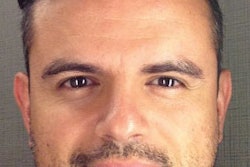Dr. Rachel Castaneda grew up in El Monte, California, in the San Gabriel Valley. While her parents graduated
from high school, most of her aunts and uncles didn’t make it that far in their academic pursuits. Many of her friends dropped out of high school to pursue ventures that were more “fun,” but Castaneda was told that education would be her gateway to success.
“My dad would always tell me that education is very important and that it helps move people out of poverty and
out of issues,” says Castaneda. “That was a message that I held close to me — so through hardships and struggles, I continued to pursue education.”
She chose to study psychology as an undergraduate at the University of California, Los Angeles (UCLA). aft er being
exposed to the realities of mental illness and drug addiction in her community and her home.
Her mother suffers from psychiatric conditions, including severe depression and psychoticism. Her father and brother both suffered from substance abuse issues in the past.
“Studying psychology as an undergraduate really helped me understand the issues of mental illness and the complexities, particularly with my mom,” she says. “Through learning about the disease, I was able to be more compassionate toward it and look for ways to help her and my family, but it’s still a struggle that challenges
us even today.”
Throughout her schooling, learning also did not come easy. She spent several hours in the library, accessing tutoring resources and meeting with teaching assistants. This became a routine, along with working part time to pay for books, food and housing.
Through perseverance, she received a bachelor’s in psychology from UCLA in 1998. She continued her studies at
UCLA, and received a master’s in 2001 and doctorate in public health in 2007.





















